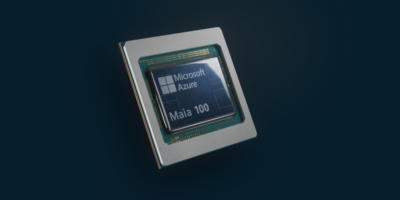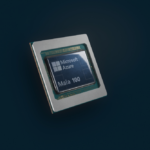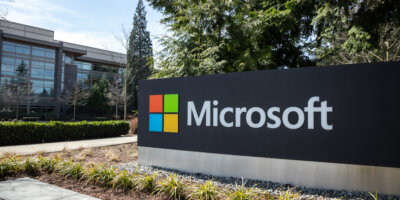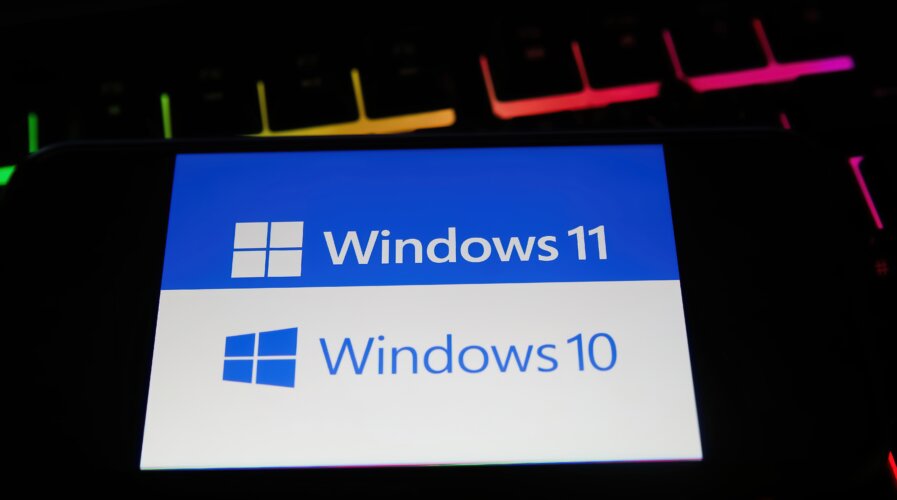
Microsoft Windows 10 support is ending. What does that mean for e-easte figures? (Image by Shutterstock).
As Microsoft ends support for Windows 10, millions of PCs could end up in landfills
- The end of Microsoft Windows 10 support could turn 240 million PCs into e-waste.
- Microsoft officially ends support for Windows 10 on October 14th, 2025.
- Incompatible PCs will most likely end up in landfills.
Microsoft will be officially ending support for Windows 10 on 14th October 2025. While that date is still almost two years away, organizations should already be looking to make plans on how to dispose of their older laptops and workstations.
According to a report by Canalys Research, roughly a fifth of devices currently being used by organizations around the world will end up becoming e-waste due to their incompatibility with the Windows 11 operating system. That equates to around 240 million PCs. And if these were all folded laptops, stacked one on top of another, they would make a pile 600km taller than the moon.
As businesses focus on ESG and being more sustainable, they need to start looking for solutions to this potential problem. While most of these PCs could be recycled, their incompatibility with newer versions of Windows automatically reduces their value for refurbishing and reselling as well.
Canalys reported that realistically, most of these PCs will most likely end up in landfills, regardless of their operating system – simply because there aren’t any sustainable options available. The Canalys 2023 Sustainability Survey found that 39% of partners already have capabilities for refurbishing and reselling second-hand devices, but that it’s still not sufficient.
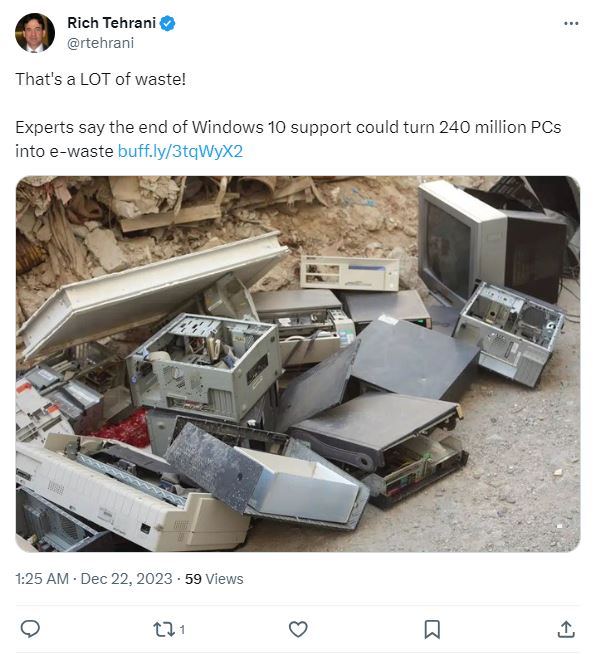
The end of Windows 10 support could turn 240 million PCs into e-waste.
From Microsoft Windows 10 to Windows 11
Windows 10 was released in July 2015. Since then, the operating system has seen several upgrades. Microsoft then released Windows 11 in October 2021. Windows 11 was seen as the answer to support a drop in PC sales, especially with the increasing capabilities of mobile devices and laptops.
Microsoft felt Windows 11 would help improve PC sales as customers would be excited by the new features in the operating system. Windows 11 is also capable of supporting generative AI features like Microsoft Copilot and new AI-powered experiences in apps like Paint, Photos, Clipchamp and more.
While these features are definitely a game-changer for desktops, it also means that the older PCs have become outdated and would be unlikely to get a second chance in the recycling or circular computing markets. According to Canalys, 57% of partners expect the end of support for Windows 10 support to affect customers’ refresh plans in 2024, with one in three devices expected to be replaced in the next two years.
At the same time, despite the channel’s growing capabilities to support circularity, partners will not be able to refurbish and resell PCs unsupported by Windows 11. As such, Microsoft’s decision will only worsen the industry’s e-waste problem and highlight the role of operating system vendors in enabling circular IT models.
Canalys expects the PC market to return to growth of 8% in 2024 as customers look to refresh the PCs of the pandemic era and new AI-capable devices emerge. The availability of Windows 11 on newer PCs will also drive growth. But many millions of in-use devices lack the hardware requirements for Microsoft’s newest operating system – preventing the channel from refurbishing these otherwise entirely viable PCs.
Microsoft itself has stated that installing Windows 11 on a device that does not meet Windows 11 minimum system requirements is not recommended. If a user chooses to install Windows 11 on ineligible hardware, they should be comfortable assuming the risk of running into compatibility issues.
“Your device might malfunction due to these compatibility or other issues. Devices that do not meet these system requirements will no longer be guaranteed to receive updates, including but not limited to security updates,” it said.
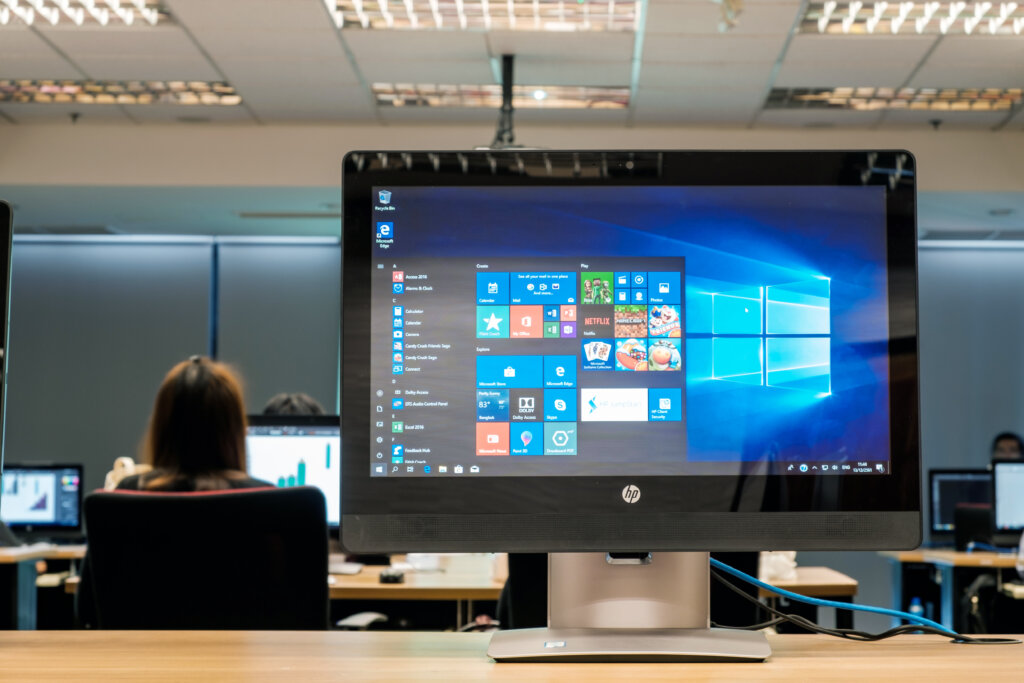
Microsoft will officially end support for Windows 10 on 14th October 2025. (Image by Shutterstock).
What can be done with the old PCs?
In the past, most companies would normally donate their older PCs to charity. While this is still a possibility despite the updates by Microsoft, there is still a huge number of PCs that will be left unwanted.
One suggestion would be to upgrade the hardware and software of the older PCs and desktops. But this itself would be a challenge. Compatibility issues are one thing, but there will also be challenges when it comes to the security of the devices. Not to mention the number of challenges faced when updating the hardware and software of the PC.
Addressing this, Microsoft issued a statement announcing that Extended Security Updates for Windows 10 will be available until October 2028. But of course, this will come with a (currently unspecified) annual fee. This approach is not new for Microsoft, which also offered paid Extended Security Updates for Windows 7 and Windows 8.1 until January 2023.
“Though the provision of extended support can prolong the lifespans of Windows 11-ineligible PCs, the cost of these security updates will likely be a barrier for many users. The pricing plans for Windows 7’s extended support began at US$25 per PC for the first year of support, quadrupling to US$100 annually in the third and final year of Extended Security Updates. If Microsoft pursues a similar pricing structure for Windows 10’s extended support, the more cost-effective option will be migration to newer, Windows 11-capable PCs – forcing older PCs onto the scrapheap,” Canalys explained.
Organizations and Microsoft may have to come up with a solution to deal with this problem soon. Otherwise, the amount of e-waste that will be potentially generated from these devices will eliminate all sustainability efforts that have been worked on.
READ MORE
- Safer Automation: How Sophic and Firmus Succeeded in Malaysia with MDEC’s Support
- Privilege granted, not gained: Intelligent authorization for enhanced infrastructure productivity
- Low-Code produces the Proof-of-Possibilities
- New Wearables Enable Staff to Work Faster and Safer
- Experts weigh in on Oracle’s departure from adland

